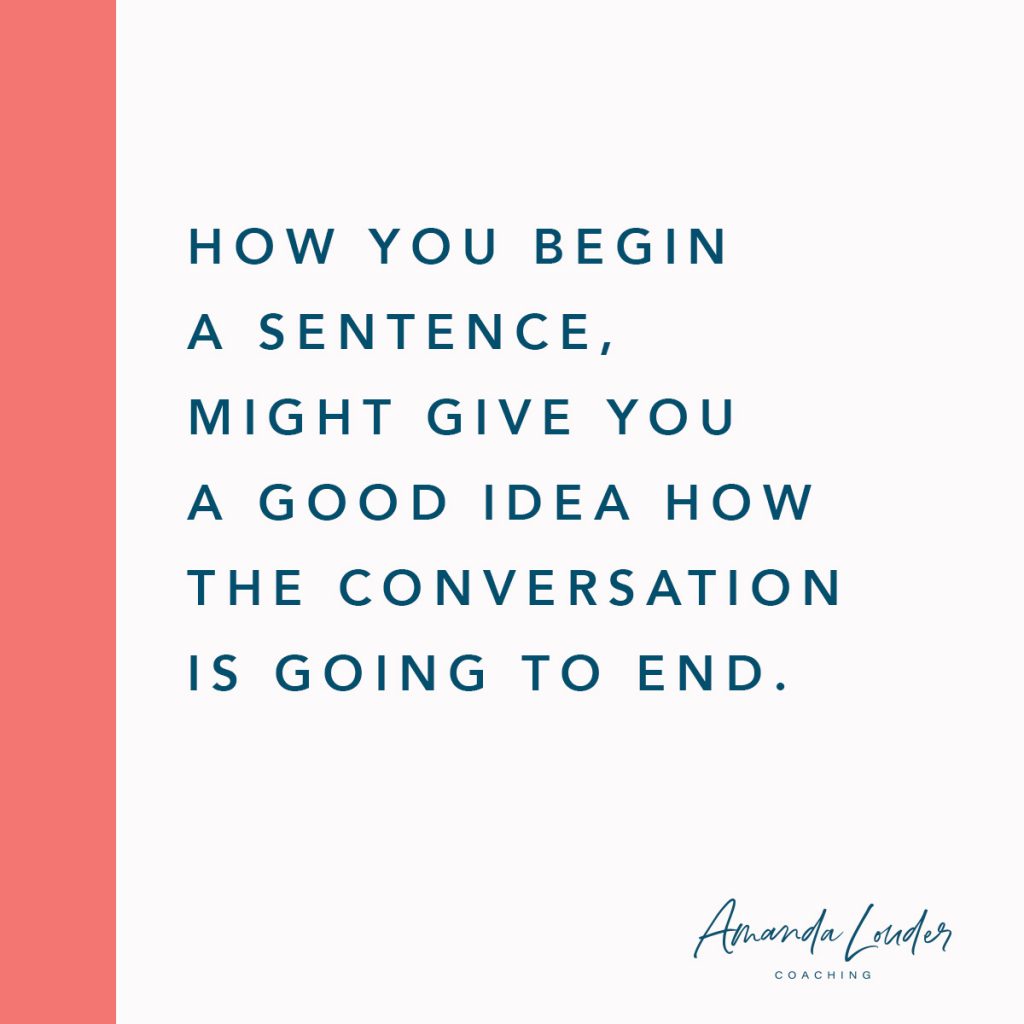
Welcome to Sexual Communication Part 2. Let’s get back to where we left off last week. Today I will share the very first communication skill you need in your marriage. It is a pre-requisite to the other 7 skills I am going to share with you. It begins with figuring out what you need from your relationship and ends with having gratitude for what you already have. Join me as we walk through each skill and how to obtain it.





Show Notes:
Follow Amanda on Facebook and Instagram.
Join Amanda’s Private Facebook Group.
References for this episode:
Becoming Cliterate by Laurie Mintz, Ph.D.
Show Summary:
Last week we talked about four faulty beliefs that keep us from communicating well. Today I want to talk about eight powerful communication skills that will change your relationship.
The first skill in communicating is a pre-requisite to all others.
- Allow yourself to be aware of what you want and your right to express it.
Women generally aren’t very good at knowing what they want and expressing it, especially when it comes to things of a sexual nature. We are so focused on pleasing others, that we don’t even know what we want. Do you find yourself constantly looking for what people need to be happy and then acting on it? Do you do the same for yourself? Probably not.
In order to understand yourself sexually, you need to understand what you desire. We spend a lot of time on this in coaching. We’ve spent our whole lives focused on others that we often don’t even know where to start when figuring out what we want for ourselves. Then, if we do figure out what we want, we are not used to expressing it or asking for it. We are worried about what other people will think of us. Will we seem selfish? Will they think we are weird? Do we deserve to have what we want? The answer is, no you aren’t selfish. No you aren’t weird. Yes, you deserve it.
Think about a child who is learning to jump off the diving board at the pool. They are standing on the edge and they are so nervous and scared to do it, but once they do, they are so proud of themselves and they often want to do it again and again. Doing it once makes it easier to do it again. It’s the same with having these conversations. It might seem scary at first, but once you do it, you will feel proud of yourself and it will be easier to do it again and again.
Skill #2
- Don’t ask questions that aren’t actually questions
Often, to avoid facing our needs head on, we ask questions that aren’t actually questions. They are statements of what we want. Has your husband ever said “Do you want to have sex?” That isn’t actually a question most of the time. It’s a statement that they want to have sex, and they are hoping that you do too. But it feels vulnerable to actually put it out there, so they ask the question instead of stating their desires. Unfortunately, this usually doesn’t produce good results.
So, rather than asking a question, practice making “I” statements and letting your partner know what you actually want. Which is actually skill #3
- Start sentences with “I” rather than with “you”
Again, often when women use “I” statements, they feel selfish. But using an “I” statement actually does the opposite. It is a skill of a respectful relationship because they allow the other person to react to a clear message rather than one that needs to be deciphered.
Starting a sentence with “you” is almost guaranteed to result in a nonproductive conversation. It immediately puts the other person on the defensive.
For example
“You never….” Or “You always….”
Sometime we try to disguise a “you” statement as an “I”
“I think you are a jerk”
An I statement would more like “I feel hurt when you do…(such and such)”
- Communicate about communication
Psychologists call this meta-communication. It’s especially useful when starting conversations you’re worried about having. An example of meta-communication is “I have something to talk to you about, but I’m afraid you might feel hurt or get angry with me.” Or “I want bring something up that I feel is important to our relationship, but I am afraid you will feel defensive or criticized.”
Starting a conversation with meta-communication allows you to put your fears out there. It also helps your partner monitor their reactions, as well as possibly avoid the reaction you were afraid of in the first place.
Meta-communication can also be used in the middle of conversations. If maybe the conversation isn’t going as you had hoped, meta-communication might look like…
“I don’t feel like I am communicating my point very well. Let me try again.” Or “I feel like we are both getting defensive and I really don’t like that. Let’s take a minute to calm down and try again.”
Meta-communication, coupled with “I” statements can be very helpful as well. “I hear you saying that you aren’t mad, but I hear your voice getting louder and louder. I wonder if it’s my imagination or if there is something going on that you aren’t telling me.”
So, in short, any communication about communication is meta-communication and involves you saying what you are thinking and observing about what is going on. If you are up in your head during a conversation, it’s time to use some meta-communication.
- Time sensitive communications well
Have difficult conversations when you and your partner are in the right space to do so. When you’re feeling calm and have time to talk things through.
- Find the grain of truth
I always say that there are two sides to every story and the truth is probably somewhere in the middle. Even if you disagree, there’s probably some truth in what your partner is saying. If you can find the truth and acknowledge it, things usually de-escalate.
If your partner is telling you something and it’s hard to hear, usually the immediate reaction is to get defensive and tell them it’s not true. But is it? Can you see it? Do you really think they are just making things up?
Remember that this is a person you love, respect, and care for. They probably have a valid point. They wouldn’t bring it up unless it was important to them. So be willing to hear them out and acknowledge the truth that is there.
- Reflect what you hear
Reflection is using your own words to repeat what someone said and, if possible, to acknowledge their emotions. Reflection helps diminish clashes and enrich understanding. It helps the person feel validated and heard, even if you don’t agree with them.
- Create a culture of appreciation
So many times in marriage we tend to focus on what we don’t like instead of focusing on what we do like. An exercise I love my clients to do is go through and list 25 things they like, love, admire, or appreciate about their partner and then add to that list every day. With this challenge they are always looking for the good in their partner and it creates a culture of gratitude and appreciation. It trains our brain to focus on the good.



